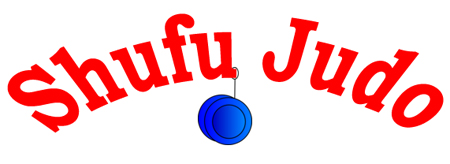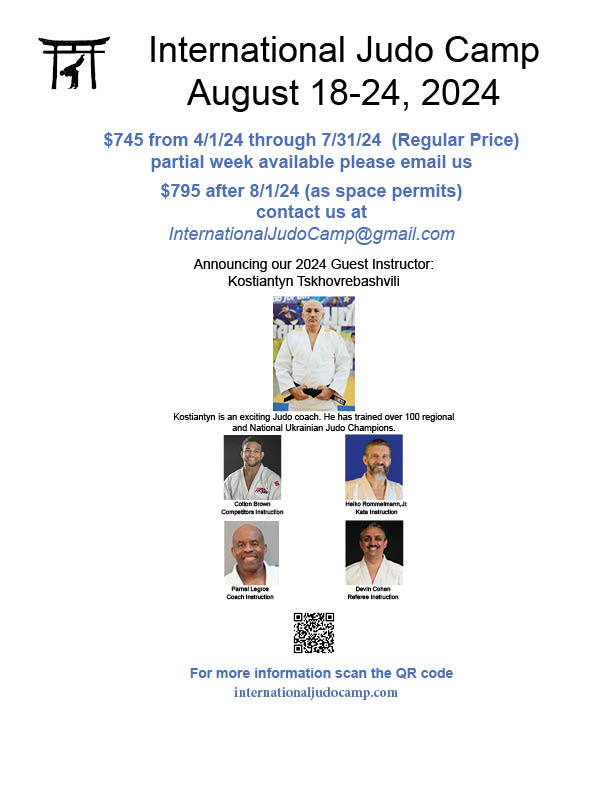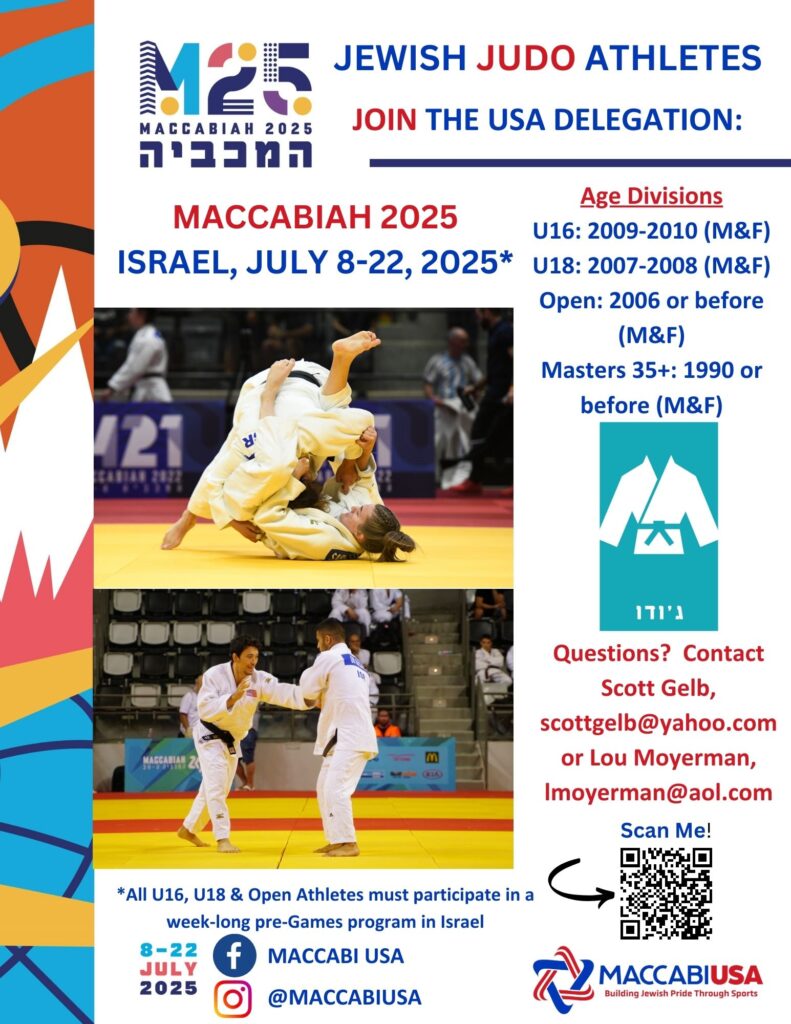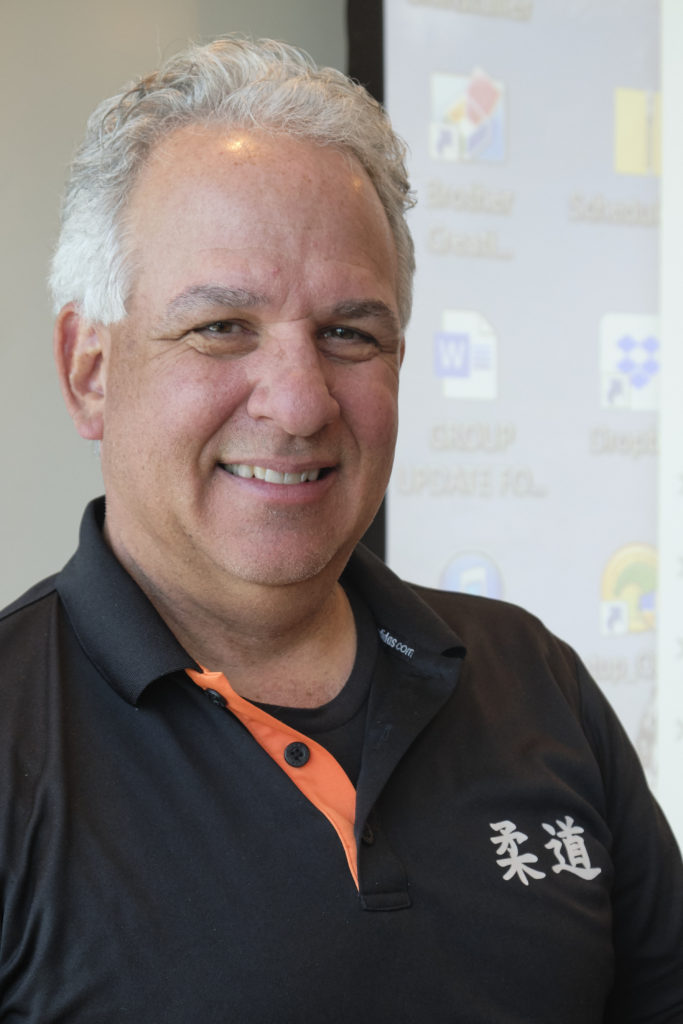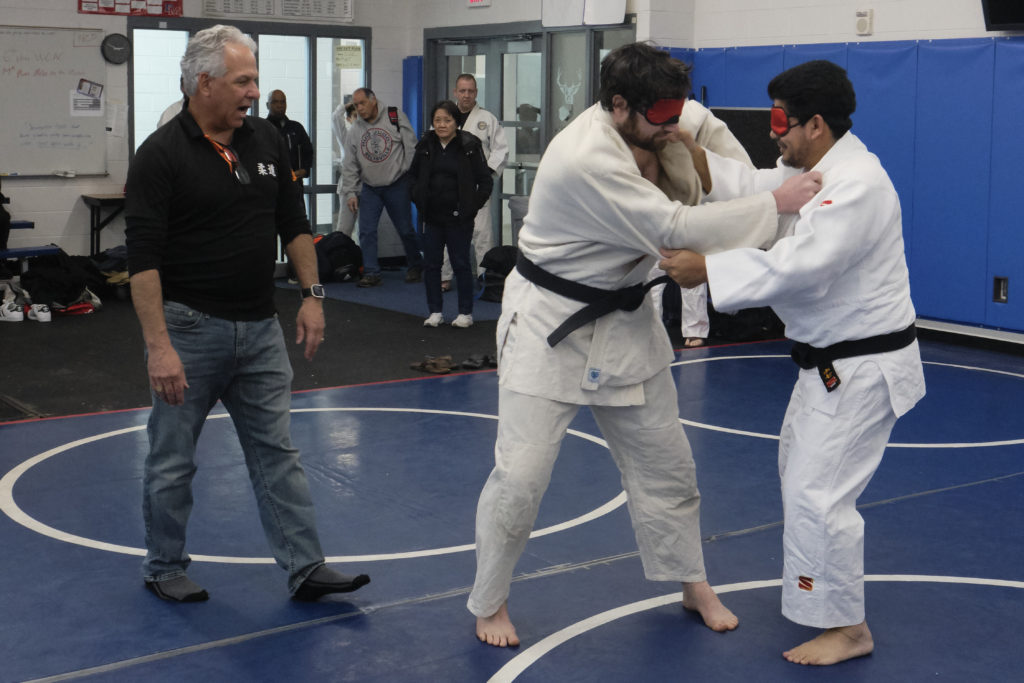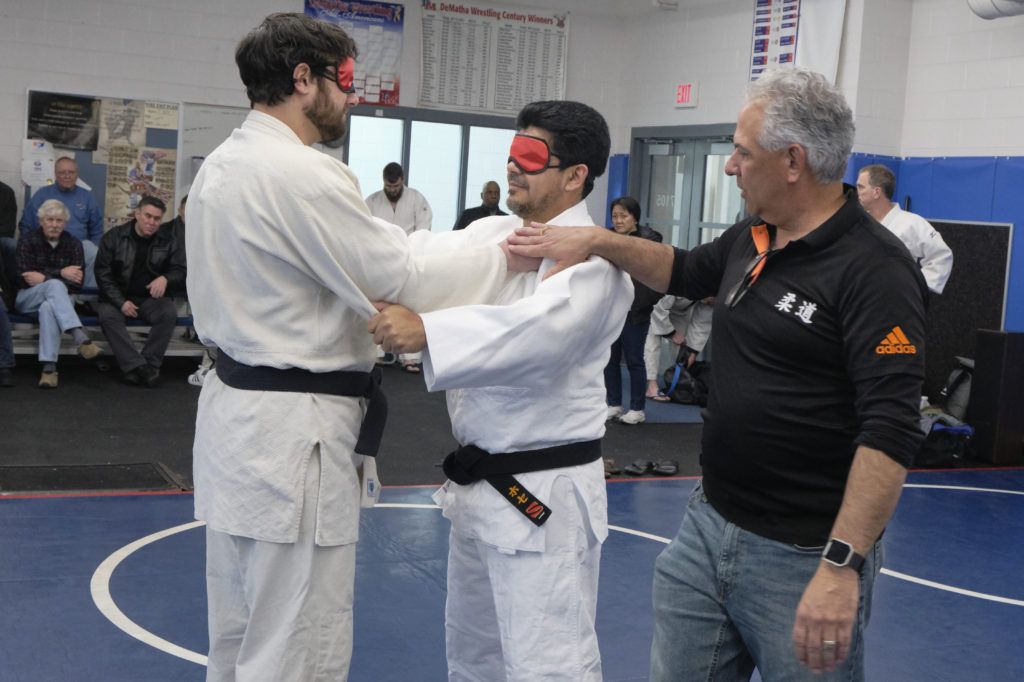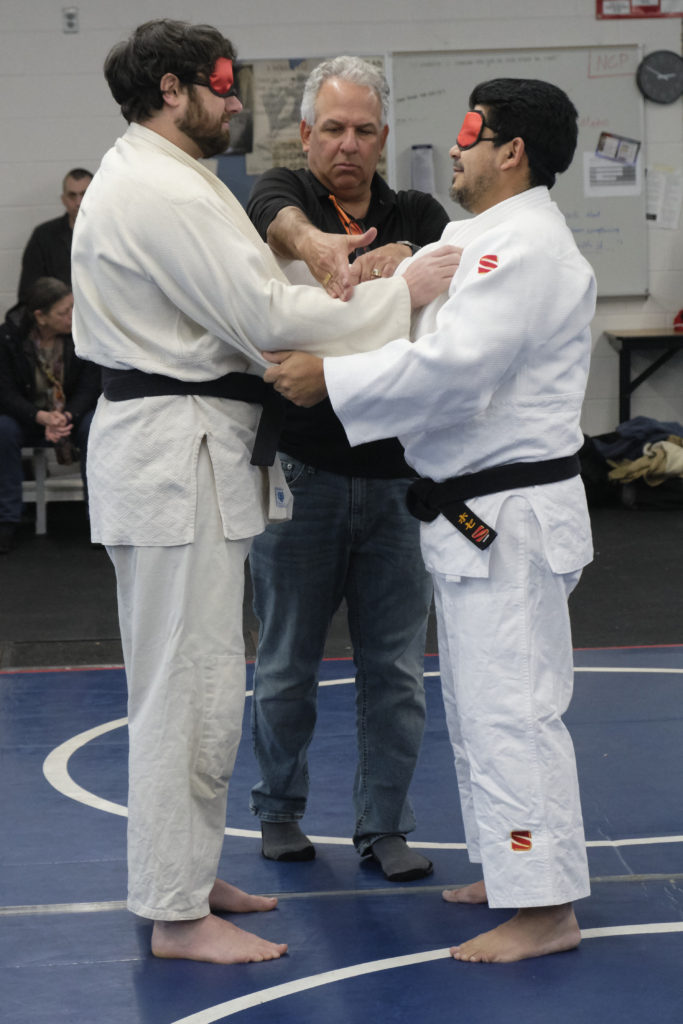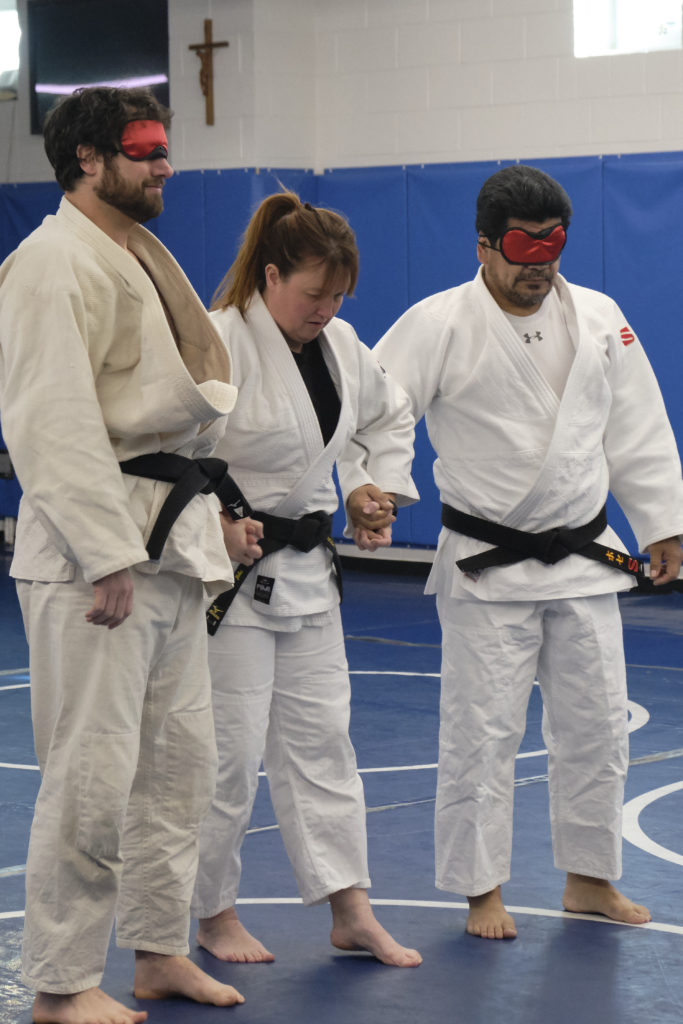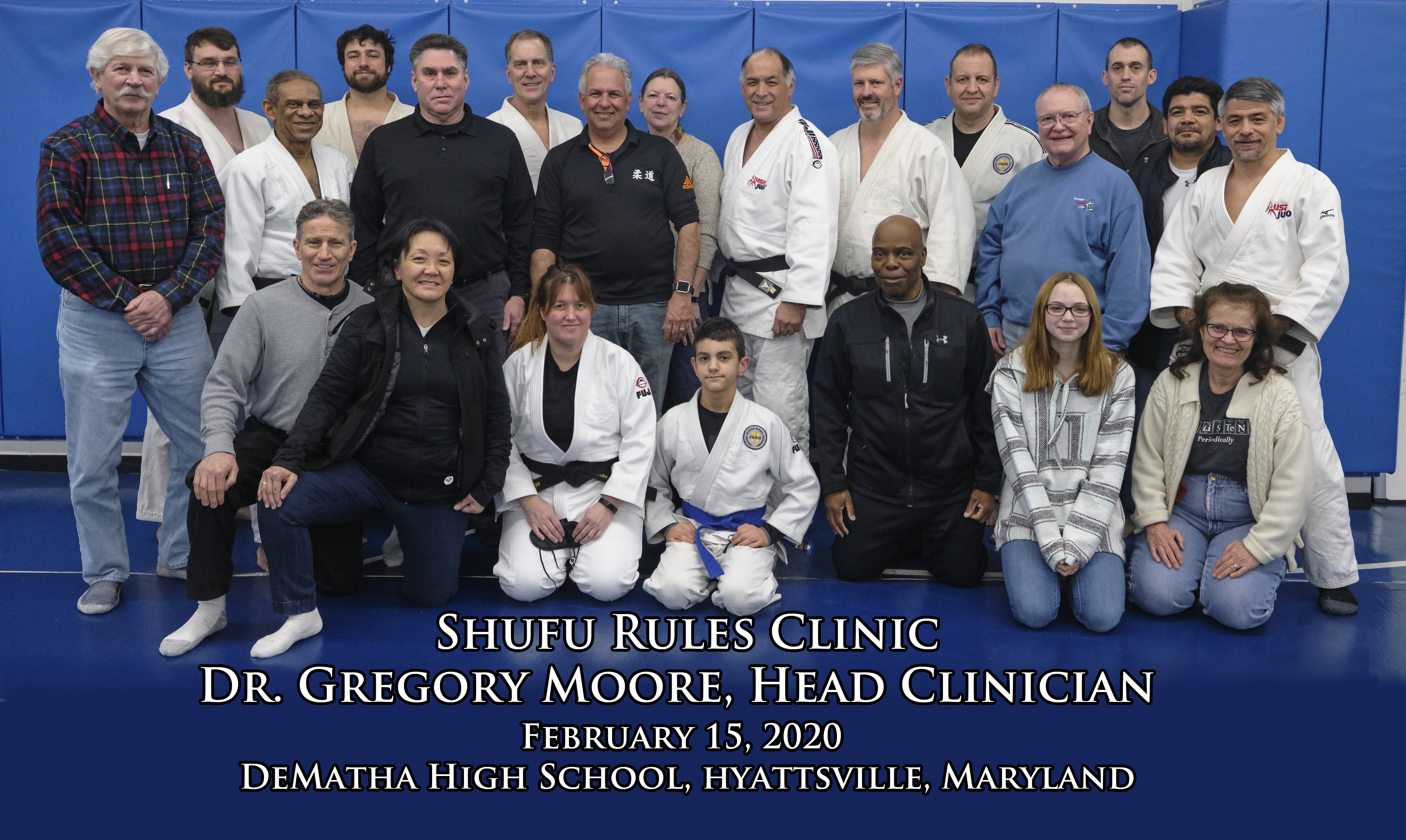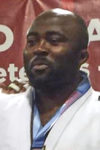On a clear, chilly day in mid-February, 35 participants from 15 clubs in Virginia, Washington, D.C., Maryland, and Massachusetts gathered at DeMatha High School in Hyattsville, MD for the 35th annual Shufu Rules Clinic.
The Rules Clinic, led for the first 11 years by Olympic referee Gaile Spadin, and for the last 24 years by IJF-A referee and current Shufu President Roy Englert, is one of the most anticipated, informative, and well-attended regional gatherings of the year for referees, coaches, and competitors.
Dr. Gregory Moore, hailing from the Phoenix, Arizona area, and a 20-year IJF-A referee who was a 2016 Paralympic referee and 2-time IBSA (International Blind Sports Administration) World Championships referee, was this year’s special clinician leading the active discussions, assisted by IJF-A referee Sharon Landstreet.
Dr. Moore spent a large portion of the morning session reviewing the major aspects of the rules of competition, with recent clarifications from the IJF. The wide range of topics included referee position during the match, ways to determine waza-ari consistently, defining when the competitors are technically doing standing techniques vs. matwork and the related criteria for scoring, reminders that shimewaza and kansetsuwaza are illegal if initiated from a standing position, scoring when landing on two hands or elbows, and how to evaluate dynamic action when differentiating throws vs. transitions into newaza.
He also reviewed the restriction and definition of unconventional grips, blocking an opponent’s grip, defining bridging and the application of the bridging rule, bear hugs, false attacks, and the leg touch/grab/blocking rule.
IJF-A referee Sharon Landstreet demonstrated many of the positions that Dr. Moore spoke about, lending a valuable visual assist to the presentation as she gave the audience a real-world view of arm angles when determining scores, methods of identifying the limits of kumikata near the legs, false attacks, and many more.
The interactive video session that followed was enlightening not only for the practical application of the rules, but to emphasize the critical importance of referee positioning for accurate score assessment, the timing of mate, pushing vs. stepping out of the mat area, and pulling down vs. illegal defensive posture.
Dr. Moore was enthusiastic about being able to teach and being the 2020 clinician for the Shufu Rules Clinic. “As an IJF-A referee, my goal is to hope that I can pass the knowledge that I have obtained, both in refereeing and judo in sportsmanship, ethics – every little bit of it. If I can pass that on positively to the next generation, I’ve succeeded. And that’s my goal.
“Doing clinics such as the Shufu clinic here, is an exceptional honor for me because I have an audience who loves the sport of judo and they want to learn. As long as I have students who want to learn, I want to teach.”
When asked about his involvement in IBSA, Dr. Moore described his entry into that sector of competitive judo refereeing: “I was asked by the Commission Member from the United States, Dr Gary Berliner, if I would be interested in learning to become an IBSA referee. Then I went through the training and the certifications. I still do the circuit work (with sighted athletes), but not as much.
“The refereeing is certainly challenging at the IJF level, but (in IBSA) it is even more challenging because you have to juggle more balls, keep more things in your head. When you are refereeing sighted players, you have your set of rules to go by, but for IBSA, you not only have those rules, but you have other rules that pertain to their disabilities that you also have to keep in your brain.
“You have to change your positioning, and you have to touch athletes sometimes, where we don’t touch sighted athletes. So there are lots of things that change, and for some people it is very easy for them to make all those adjustments in their head, and for other people, it’s just too much, they can’t do it. It’s hard enough just to do the refereeing part – they can’t remember how to do all the other things.”
When asked about his frequent use of the term “dynamic”, Dr. Moore explained: “The way the IJF looks at it, is that judo is not static. Obviously in pictures you see competitors in one position. But how did they get to that position? Was there kuzushi before, did one step back? Did the other do this? It’s all part of what created whatever action that you are looking at. So you have to look at the whole picture.
“And this is where we sometimes can get microfocused on one thing, such as the landing. But what happened prior to that? How did it get to that point? Was there a pause? Was there no pause? Was it something illegal that got him in that position? All these different things are part of the dynamic, so you as the referee have to look at the whole scenario.”
At midday, Dr. Moore embarked upon what would be the major topic of the day, a discussion of IBSA categories followed by a detailed interactive discussion of an impressive array of skills separate and distinct from refereeing sighted athletes, delivering information that was new and highly informative to many of the group.
This was unique to the Shufu Rules series, reflected in the high level of interaction from the attendees. He included explanations of the referee guidelines for escorting and positioning blind, or blind and deaf, athletes, preparing athletes’ stance and grips for action, stopping action, repositioning, edge rules, referee proximity to the athletes, and methods of communicating scores and penalties to deaf blind athletes.
He also predicted that there will be more tournament events that include conventional and IBSA categories, and mentioned that the IJF is considering requiring IJF-A referees to be skilled in the management of visually impaired competitors in addition to their expertise with sighted competitors.
The rest of the afternoon was taken up by practical, on-the-mat guidance, with several brave attendees demonstrating their ability to utilize the extensive amount of information to practice refereeing procedures on blindfolded judokas. Dr. Moore skillfully raised those volunteers to a higher level of understanding by physically guiding their actions as needed for refereeing blindfolded judokas.
Sharon Landstreet, Real Judo Magazine’s 2018 Referee of the Year, and who has been the special clinician in the Shufu Rules Clinic series herself, spoke positively about the day’s experience: “It’s always good for coaches, players, and referees to come out to referee clinics so that we can all be on the same page. If the coaches and players don’t know what the referees are doing it creates miscommunication and other issues.
“Today we had the ISBA rules, which are good to know as a well-rounded referee and coach, because you never know if you’re going to have a blind or deaf person come into your judo club. So these opportunities where we can have both the conventional and ISBA rules communicated by someone who has this experience is vital.”
Dr. Moore’s presentations and practical on-mat guidance, especially for the ISBA categories of athletes, was an opportunity to learn from a highly experienced and specialized referee, adding substantially to the awareness and understanding of the distinct requisites of visually impaired athletes.
In speaking with the attendees throughout the day, this observer is certain that Shufu referees, coaches, and competitors have gained significantly from Dr. Moore’s knowledge and experience. The Shufu team of Karl Tamai and Bobby Donaldson, with consultation from Sharon Landstreet and Roy Englert, has once again done a great job in selecting the Rules Clinic special clinician.
Finally a special thanks to Kevin Tamai for planning and organizing the event at DeMatha High School. The combination of conference room with darkening shades along with the well-lit wrestling room was ideal for the lecture/hands-on format.
The only question now is, Who’s going to be the special clinician for next year? Stay tuned to Shufujudo.org!
Helpful Link: IBSA Judo Rules 2018
Chuck Medani
All Photos © 2020 Charles Medani/refreshing-images.com
